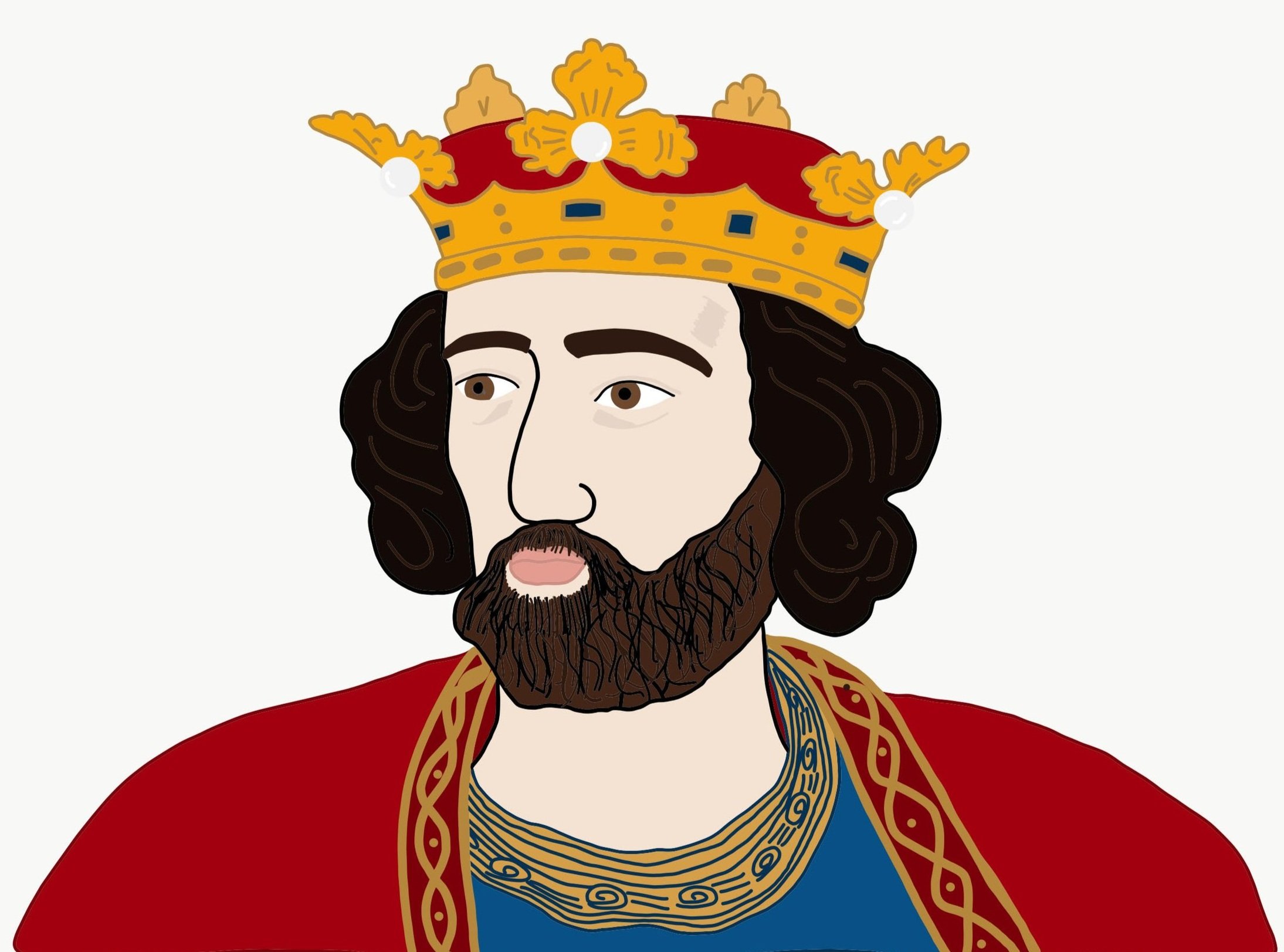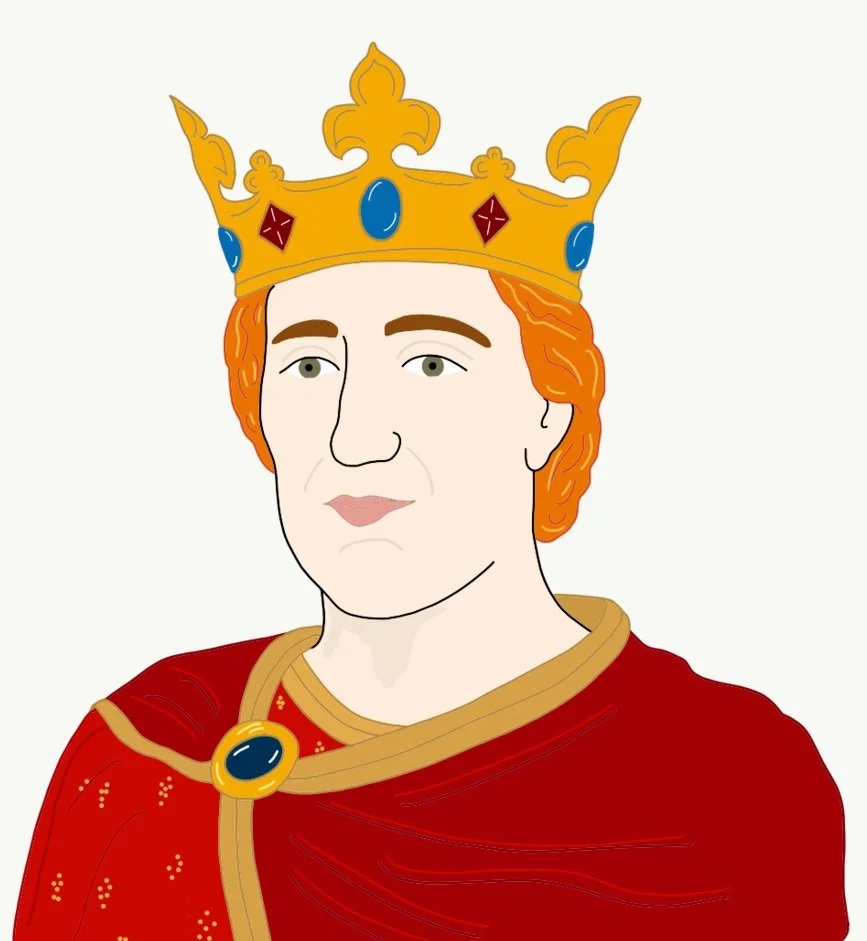February 28th - March 6th
“A week about Wales - their patron saint; new English laws; and a fatal daring escape from the Tower of London…”
On 28th February…
364 - Valentinian I became Roman Emperor. In 399, he managed to restore order to Roman rule in Britain after the native tribes had rebelled and managed to overthrow the Romans that were in control. Valentinian had to send a large army, headed by the General Theodosius, which used soldiers from all over the Roman Empire, in order to try and gain control once more. The local Celts had overthrown the Romans and had been running the country for nearly two years. Less than fifty years later all the Romans left Britain to tackle other problems on the European continent.
On 1st March…
589 - Happy Saint David’s Day! Dydd Gŵyl Dewi Hapus! - if you have no idea how to pronounce the Welsh it goes a little like this - deethe goil Dewi hapeece.
David is the patron Saint of Wales and was said to have died on 1st March 589 which is why we celebrate St David’s day today. He is buried at Saint David’s cathedral on the Pembrokeshire coast in Wales.
He was the grandson of King Ceredig ap Cunedda, the King of Ceredigion and was born to his mother St Non, on a cliff top during a fierce storm. There is a chapel marking the spot where he was said to have been born and the waters of a nearby well are reputed to have healing powers.
David became a famous preacher and founded many monasteries and churches. A stone in St David’s Cathedral is said to have been brought back with him from a pilgrimage to Jerusalem.
David followed a strict diet of leeks and water - nothing else and refused to use cattle or oxen to help plough the fields preferring to use his own hands to work the earth in order to sow the seeds for his own food.
Did you know that a miracle was said to have happened whilst he was preaching to a large group of followers? The group was so large that people at the back began to complain that they couldn’t hear him as he became aware of this fact the earth beneath him rose up to form a hill and a white dove flew down and settled on his shoulder as a message from God.
To mark this day people across Wales will wear a badge of a daffodil (the National flower) or a leek in memory of his pure diet.
1244 - Gruffydd ap Llywelyn Fawr, the son of the Welsh leader Llywelyn the Great, died whilst trying to escape from the Tower of London. He had made a makeshift rope out of sheets and blankets and was attempting to climb from his window but the rope broke and Gruffydd fell to his death.
On 2nd March…
1316 - King Robert II of Scotland was born. He was the son of Walter the Steward and became the hereditary Steward of Scotland at the age of 10 years. He was heir to the Scottish throne through his mother who was the daughter of King Robert the Bruce. Robert II became king when he was nearly 55 years old, he was the first of the Stewart (or Stuart) kings who eventually went on to rule England as well as Scotland.
Queen Victoria
1882 - An assassination attempt was made on the life of Queen Victoria whilst she was sitting in her carriage at Windsor Station. Roderick Maclean broke though the crowds and shot at the carriage. He was overpowered by the cheering onlookers and nearby police before he could let off another shot at the queen. Queen Victoria remained calm and continued on her way to Windsor Castle, after all she thought it was just an explosion from an engine and not somebody trying to kill her. This was the eighth assassination attempt on her life.
On 3rd March…
King Edward I
1284 - King Edward I issued The Statute of Rhuddlan which incorporated the Principality of Wales into England. This meant that from that day onwards the people of Wales had to abide by English law
1847 - Alexander Graham Bell, inventor of the telephone, was born in Edinburgh, Scotland.
On 4th March…
1824 - The RNLI (Royal National Lifeboat Institution) was founded by Sir William Hillary in a London Tavern. At the time there were around 1,800 shipwrecks around the coast of Britain every year and Sir Hillary refused to sit by and watch more and more people die from drowning. Living on the Isle of Man he had witnessed many shipwrecks first-hand and had helped to save many lives. He decided it was high time that something was done and gathered the support of prominent businessmen to set up the Institution. Did you know that it was originally called the National Institution for the Preservation of Life from Shipwreck?
1890 - The Forth Bridge was opened in Scotland. At the height of its construction there were about 4,600 workers employed in the building of the bridge. Building it was not the safest of jobs, over 50 people died and in one logbook alone there were 26,000 reports of accidents and sickness.
On 5th March…
King Henry II
1133 - King Henry II of England was born in France. He was the son of Empress Matilda, the daughter of King Henry I, and her second husband, Geoffrey Plantagenet, Count of Anjou. (Anjou is a region in France.) Henry became King of England and began the Plantagenet Dynasty when his cousin King Stephen died.
1790 - Flora MacDonald the Jacobite heroine who helped Bonnie Prince Charlie to escape dressed as a maid died. She was imprisoned in the Tower of London for aiding his escape but was later pardoned and released.
On 6th March…
1340 - John of Gaunt was born. He was the third surviving son of King Edward III and although John never became king, his son, Henry Bolingbroke, became King Henry IV.
1475 - The Italian Renaissance artist, Michelangelo was born. His famous works of art include the ceiling of the Sistine Chapel in Rome, and the statue of David.
Aspirin
1899 - The painkiller Aspirin was trademarked by Bayer.
Did you know that the painkiller was originally made from a chemical found in the bark of willow trees? Willow was used by ancient civilisations such as the Egyptians as an anti-inflammatory and pain reliever for general aches and pains. In Ancient Greece, Hippocrates gave willow leaf tea to women to relive the pain of childbirth.




